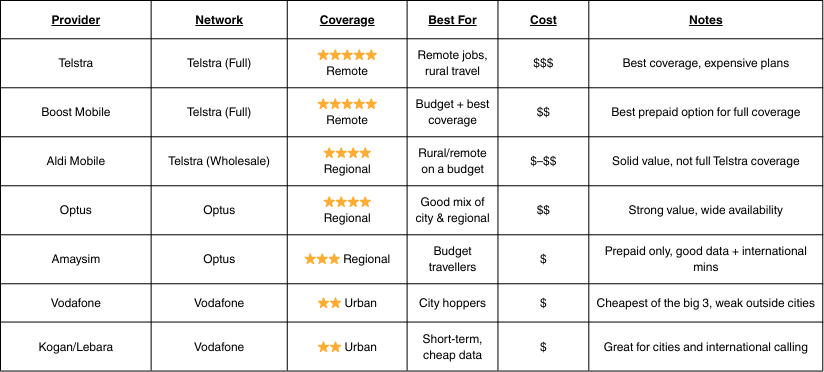
Backpackers Starter Guide
Step 1: Get an Australian Phone Number.
Choosing the right mobile provider can make a big difference to your travel and work experience. The right plan ensures you have reliable coverage where you need it—whether you're working on a remote farm, job-hunting in the city, or travelling between states. Poor coverage could mean missing out on job calls, navigating issues, or staying connected with friends and employers.
Step 2: Apply for a Tax File Number (TFN)
Apply online via the Australian Taxation Office (ATO) website.
You’ll need a valid passport and an Australian address (can be a hostel).
Your TFN will be posted to you within 28 days.
Step 3: Set Up an Australian Bank Account
Visit a major bank (e.g., Commonwealth, Westpac, ANZ, NAB) with your passport.
Some banks allow you to open an account online before arriving.
You’ll need an address to receive your debit card.
Industry-Specific Courses & Certificates
Depending on the type of work you’re seeking, some industries require mandatory training or certifications:
🍹Hospitality (bars, pubs, restaurants)
RSA (Responsible Service of Alcohol)
Required if you want to serve alcohol.
Course must be valid in the state you’re working in (e.g., RSA NSW differs from RSA VIC).
Cost: ~$50–$150
Available online (some states) or in-person.
🏗️ Construction/Labouring
White Card (Construction Induction Training)
Mandatory for all construction site workers.
Covers safety and legal responsibilities.
Cost: ~$50–$100
Can be completed online (except in WA).
🛏️ Hospitality (Hotels/Housekeeping)
No formal certification needed, but experience helps.
Barista Course recommended if applying for café work.
🍇 Farm Work / Regional Jobs (for 2nd & 3rd Year Visas)
No specific courses required.
Some jobs may require white card, specific training or machinery tickets (e.g., forklift licence).
Check job ads for specific requirements.
